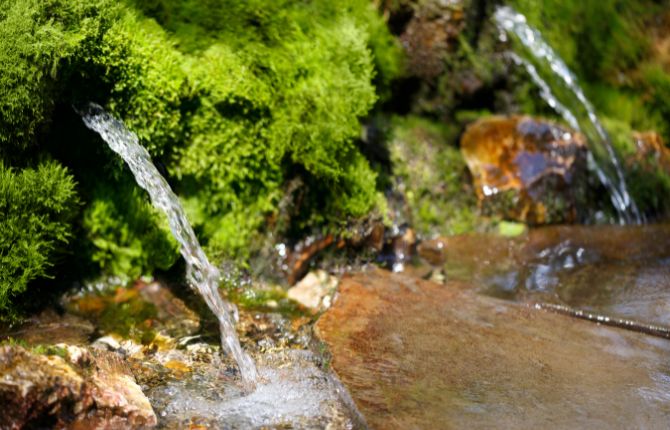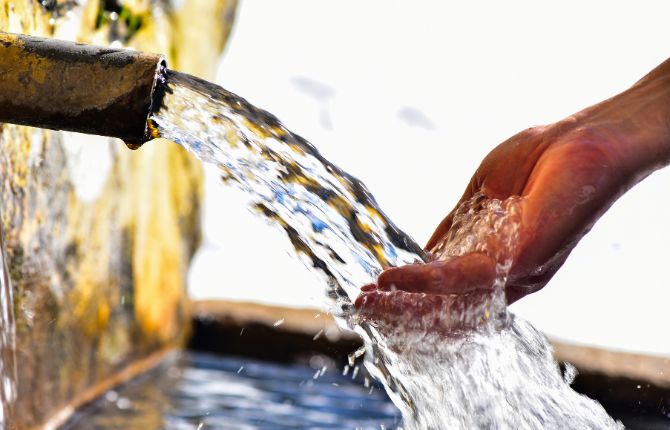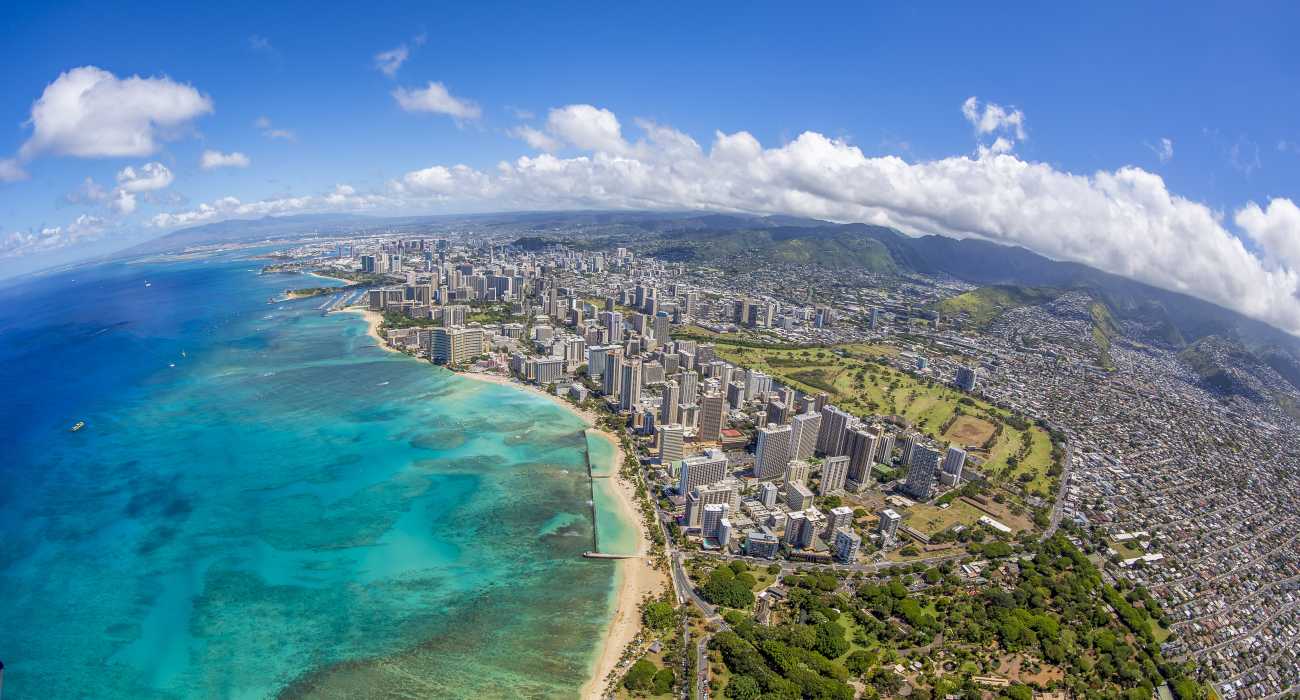In recent times, concerns about the safety of tap water have become increasingly prevalent, prompting people to question the quality of their drinking water. For residents and visitors in Georgia, a southeastern U.S. state renowned for its diverse landscapes and rich history, the question “Can you drink tap water in Georgia?” is a valid one.
Georgia’s tap water quality varies depending on the region. Generally, urban areas such as Atlanta have robust water treatment facilities that meet stringent safety standards set by the Environmental Protection Agency (EPA).
These treatment plants use advanced filtration and disinfection methods to ensure the removal of contaminants.
In contrast, rural areas might face challenges due to outdated infrastructure and limited resources. Local water sources could potentially contain contaminants like bacteria, heavy metals, and agricultural runoff.
To address this, it’s advisable for residents in these regions to invest in home water filtration systems certified to remove a broad range of impurities.
To stay informed about tap water quality, the Georgia Environmental Protection Division provides annual Consumer Confidence Reports. These reports offer valuable insights into local water sources, potential contaminants, and the treatment process.
In conclusion, the safety of tap water in Georgia hinges on your location. In major urban centers, tap water is generally safe due to robust treatment systems. However, in rural areas, precautions like filtration are recommended.
By staying informed and taking necessary measures, residents and visitors can confidently enjoy Georgia’s tap water while safeguarding their health.
Can You Drink Tap Water in Georgia?
Contaminants and Safety Measures of Tap Water in Georgia
Tap water quality is a paramount concern in Georgia, with an increasing focus on identifying contaminants and implementing safety measures.
A comprehensive understanding of the subject reveals the presence of various contaminants, including heavy metals, pesticides, and microbial agents. These pollutants can potentially pose health risks when consumed over extended periods.
To address these concerns, Georgia has established rigorous safety measures. The Environmental Protection Division (EPD) closely monitors water quality, conducting regular testing to identify and quantify contaminants.
Water treatment plants employ advanced filtration and disinfection techniques, such as chlorination and UV treatment, to ensure the removal of harmful substances.
Furthermore, public awareness campaigns educate residents about the importance of water filtration systems and the benefits of using water filters certified by relevant authorities.
Prioritizing water safety remains a collective effort. By staying informed, advocating for regular water quality testing, and adopting effective filtration methods, Georgians can contribute to safeguarding their tap water and promoting the health and well-being of their communities.
Can You Drink Tap Water in Georgia?
Water Sources and Treatment in Georgia
In the picturesque state of Georgia, abundant water sources play a vital role in sustaining its natural beauty and thriving communities.
From the Appalachian foothills to the coastal plains, Georgia boasts diverse water bodies including rivers, lakes, and reservoirs. However, the importance of water treatment cannot be understated in ensuring a safe and clean water supply.
The state employs a comprehensive approach to water treatment, adhering to stringent standards set by the Environmental Protection Division.
Municipalities utilize various treatment methods like coagulation, sedimentation, and disinfection to purify water before distribution. Additionally, advanced technologies like reverse osmosis and UV treatment are gaining traction.
Georgia’s unique water challenges stem from its growing population and changing climate patterns. Sustainable water management strategies are being implemented to balance water demand with availability.
Conservation initiatives and watershed protection programs are actively promoted to safeguard this precious resource.
Water Quality Reports in Georgia
Water quality is of paramount importance to public health, and Georgia’s commitment to providing safe drinking water is reflected in its comprehensive water quality reports.
These reports play a pivotal role in keeping residents informed about the safety and cleanliness of their water supply.
Georgia’s water quality reports offer a transparent overview of various parameters, including pH levels, microbial contaminants, heavy metals, and disinfection byproducts.
Accessible to all residents, these reports empower communities to make informed decisions about their water usage.
In the Peach State, water quality reports are a result of rigorous testing conducted by state agencies and local water utilities. These examinations ensure compliance with federal standards set by the Environmental Protection Agency (EPA).
By detailing the origins of water sources, treatment processes, and potential risks, the reports provide a holistic understanding of water safety.
Staying updated with these reports fosters awareness and encourages proactive measures towards preserving water quality.
Georgia’s dedication to transparency underscores its commitment to the well-being of its residents and the preservation of its precious water resources.
Potential Health Risks of Drinking Tap Water in Georgia
Drinking tap water is a daily ritual for many, but in Georgia, there are potential health risks that warrant attention.
While tap water in the state is regulated, concerns have arisen due to aging infrastructure and environmental factors. High levels of contaminants such as lead, chlorine byproducts, and even trace pharmaceuticals have been detected. These substances, when ingested over time, can lead to adverse health effects.
Lead, especially harmful to children, can impact neurodevelopment. Chlorine byproducts have been linked to cancer and reproductive issues. Moreover, the presence of unregulated compounds like pharmaceuticals raises questions about long-term consequences.
To mitigate these risks, consider using water filters certified to remove specific contaminants. Regularly maintaining plumbing systems can help reduce exposure to lead and other impurities.
Staying informed about water quality reports provided by local authorities is crucial. While tap water is convenient, understanding its potential health implications empowers individuals to make informed choices for their well-being.
Can You Drink Tap Water in Georgia?
Comparing Tap Water and Bottled Water in Georgia
In Georgia, the debate over tap water versus bottled water has gained momentum due to concerns about water quality and environmental impact.
Tap water, sourced from municipal supplies, undergoes rigorous testing and treatment, meeting strict safety standards set by regulatory bodies. This ensures that Georgians receive water that’s not only safe but also cost-effective.
On the other hand, bottled water, while convenient, raises environmental concerns due to plastic waste and carbon emissions associated with production and transportation.
Additionally, some studies suggest that bottled water may not necessarily be superior to tap water in terms of quality.
Georgia’s tap water is typically treated with advanced filtration and disinfection techniques, ensuring the removal of contaminants. Moreover, the fluoridation of tap water promotes dental health, a benefit not always found in bottled options.
While personal preferences vary, the evidence leans towards tap water being a reliable and eco-friendly choice for Georgians. By investing in continued improvements to water infrastructure, Georgia can confidently promote the use of its clean and accessible tap water.
Can You Drink Tap Water in Georgia?
Regulations and Compliance on Tap Water in Georgia
In Georgia, ensuring the safety and quality of tap water is a paramount concern, and this is achieved through a comprehensive framework of regulations and compliance measures.
These regulations are in place to guarantee that the water delivered to households meets stringent health and safety standards.
The Georgia Department of Natural Resources (DNR) plays a pivotal role in overseeing the regulations related to tap water. They work in tandem with the Environmental Protection Division (EPD) to monitor and enforce compliance with federal and state regulations, such as the Safe Drinking Water Act.
This Act mandates the establishment of maximum contaminant levels for various pollutants and requires regular testing and reporting by water suppliers.
Water treatment plants in Georgia are required to utilize advanced technologies to remove impurities and ensure water safety. Regular testing is conducted to monitor factors like bacterial contamination, chemical levels, and pH balance.
The EPD conducts routine inspections to assess compliance and initiates enforcement actions if violations are identified.
Residents can also access information about tap water quality through annual Consumer Confidence Reports provided by water suppliers. These reports offer insights into the water source, detected contaminants, and compliance with regulations.
The collaborative efforts of regulatory bodies and water suppliers ensure that the quality of tap water remains a top priority for the well-being of the population.
Addressing Issues and Maintaining Safe Water in Georgia
Access to clean and safe water is a fundamental necessity for the well-being of any community, and Georgia is no exception. While the state boasts abundant water resources, it also faces significant challenges in maintaining water quality and availability.
Georgia’s water issues stem from various factors, including urbanization, agricultural runoff, and industrial activities.
These factors contribute to pollution, affecting both surface and groundwater sources. Additionally, the state’s growing population strains existing water infrastructure, underscoring the importance of sustainable management.
Addressing these challenges requires a multifaceted approach. Implementing stringent regulations on industrial discharges and agricultural practices is essential to curb pollution at its source. Investing in modern wastewater treatment facilities can significantly reduce contaminants entering water bodies.
Furthermore, promoting community awareness about proper waste disposal and conservation practices can foster a culture of responsibility towards water resources.
To maintain safe water, Georgia must also invest in advanced water treatment technologies. Techniques such as reverse osmosis and ultraviolet disinfection can purify water, making it safe for consumption.
Developing and maintaining a robust water infrastructure, including pipes and storage facilities, is equally crucial.
By enacting stringent regulations, adopting advanced treatment technologies, and fostering community engagement, the state can overcome its water challenges and secure safe water for generations to come.
Can You Drink Tap Water in Georgia?
Frequently Asked Questions
1. How Is Atlanta’s Tap Water Quality?
When it comes to the quality of tap water, Atlanta residents may wonder whether the water flowing from their faucets is safe and clean for consumption.
Understanding the factors that contribute to Atlanta’s tap water quality is essential for ensuring the health and well-being of its residents.
Atlanta draws its tap water primarily from the Chattahoochee River and the Lake Lanier reservoir. Before it reaches homes, the water undergoes a rigorous treatment process. This process includes disinfection, filtration, and testing for various contaminants, such as bacteria, heavy metals, and chemicals.
The Environmental Protection Agency (EPA) sets guidelines for safe drinking water, and Atlanta’s water treatment facilities adhere to these regulations. Regular testing is conducted to monitor the water’s quality, with results made available to the public.
While Atlanta’s tap water generally meets safety standards, concerns have been raised about the presence of certain contaminants like lead, which can leach into water from older pipes. However, ongoing efforts are in place to replace these aging pipes and reduce the risk.
Residents can also take additional steps to ensure the quality of their tap water. Using a certified water filter can provide an extra layer of protection, especially for vulnerable populations.
Atlanta’s tap water quality is a subject of careful monitoring and treatment. With proper precautions and an awareness of the sources and treatment processes involved, residents can confidently enjoy the water that flows from their taps.
Can You Drink Tap Water in Georgia?
2. Does Savannah Have Safe Tap Water?
Savannah, renowned for its historic charm and scenic beauty, beckons residents and visitors alike. As concerns about water quality and safety continue to be paramount, many wonder, “Does Savannah have safe tap water?” Exploring this question is crucial for ensuring the well-being of the community.
Water Source and Treatment
Savannah’s tap water primarily comes from the Floridan Aquifer, a vast underground reservoir known for its natural filtration properties. Before reaching taps, the city’s water undergoes rigorous treatment processes.
Advanced methods, including coagulation, filtration, and disinfection, remove contaminants, sediment, and microorganisms, ensuring compliance with rigorous safety standards set by the Environmental Protection Agency (EPA).
Quality Assurance
The City of Savannah’s Water Department conducts regular water quality testing at various stages of the treatment process and distribution network.
These tests assess factors such as pH levels, chlorine levels, and the presence of heavy metals or harmful bacteria. The results consistently meet or surpass the EPA’s guidelines for safe drinking water.
Community Involvement
Savannah residents can actively engage in maintaining water safety by staying informed about the city’s annual Consumer Confidence Report. This report provides detailed information about the water source, treatment procedures, and the outcomes of water quality tests.
Additionally, individuals can adopt eco-friendly practices to protect local water sources, supporting the overall health of the community.
Savannah’s tap water, drawn from the Floridan Aquifer and subjected to rigorous treatment and testing, meets stringent safety standards.
With a commitment to transparency and community involvement, the city ensures that its residents and visitors can enjoy safe and refreshing tap water without hesitation.
3. Is Hard Water Common In Georgia?
Hard water is a prevalent concern in many regions, and Georgia is no exception. This southeastern state, known for its lush landscapes and warm climate, often grapples with the effects of hard water.
Hard water contains high mineral content, primarily calcium and magnesium ions, which can lead to various issues. From scaling in pipes and appliances to reduced soap lathering, hard water’s impact is noticeable.
In Georgia, the presence of limestone and chalk deposits contributes to the hardness of the water supply.
Municipal water treatment facilities often address this by employing water softening processes, but homeowners might still encounter hard water problems.
Fortunately, solutions like water softeners or conditioners are available to mitigate these issues. Regular maintenance and awareness of the water quality in your area are crucial steps to counter the effects of hard water.
Whether you’re in bustling Atlanta or the charming coastal towns, being informed about hard water’s prevalence can help you take the necessary steps to maintain your home’s plumbing and overall water quality.
Can You Drink Tap Water in Georgia?










